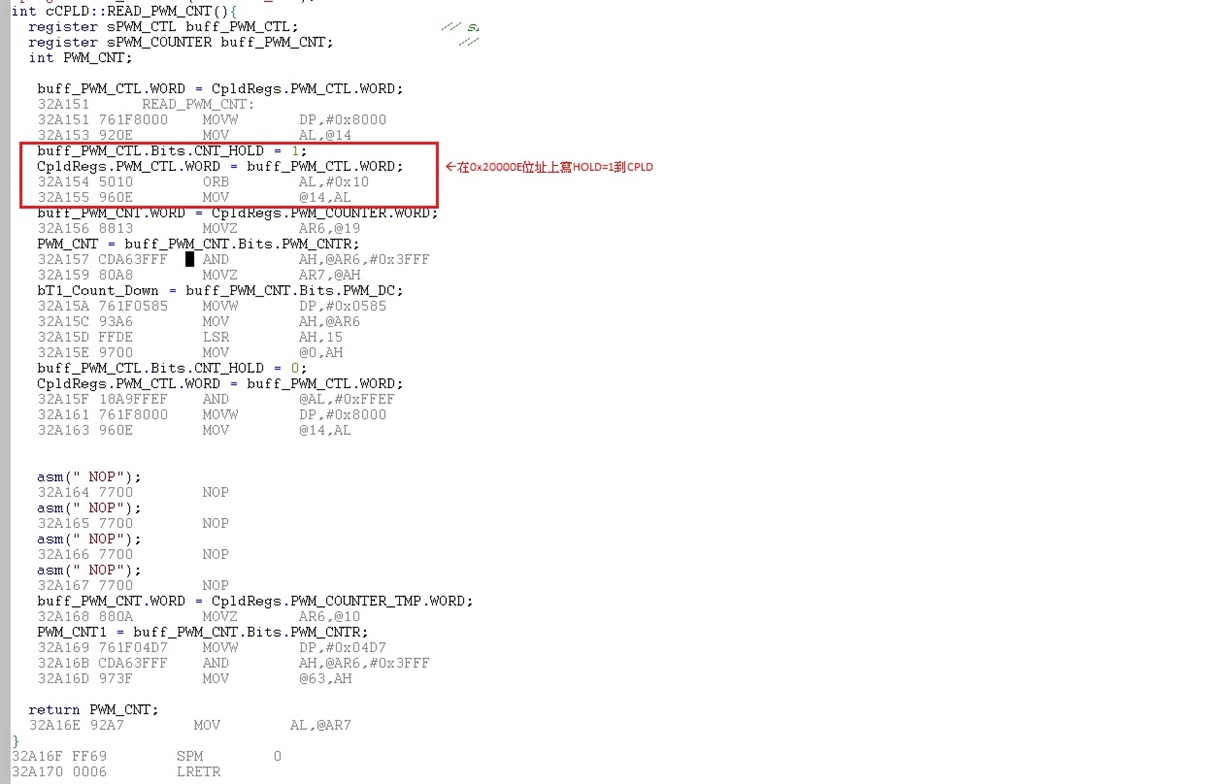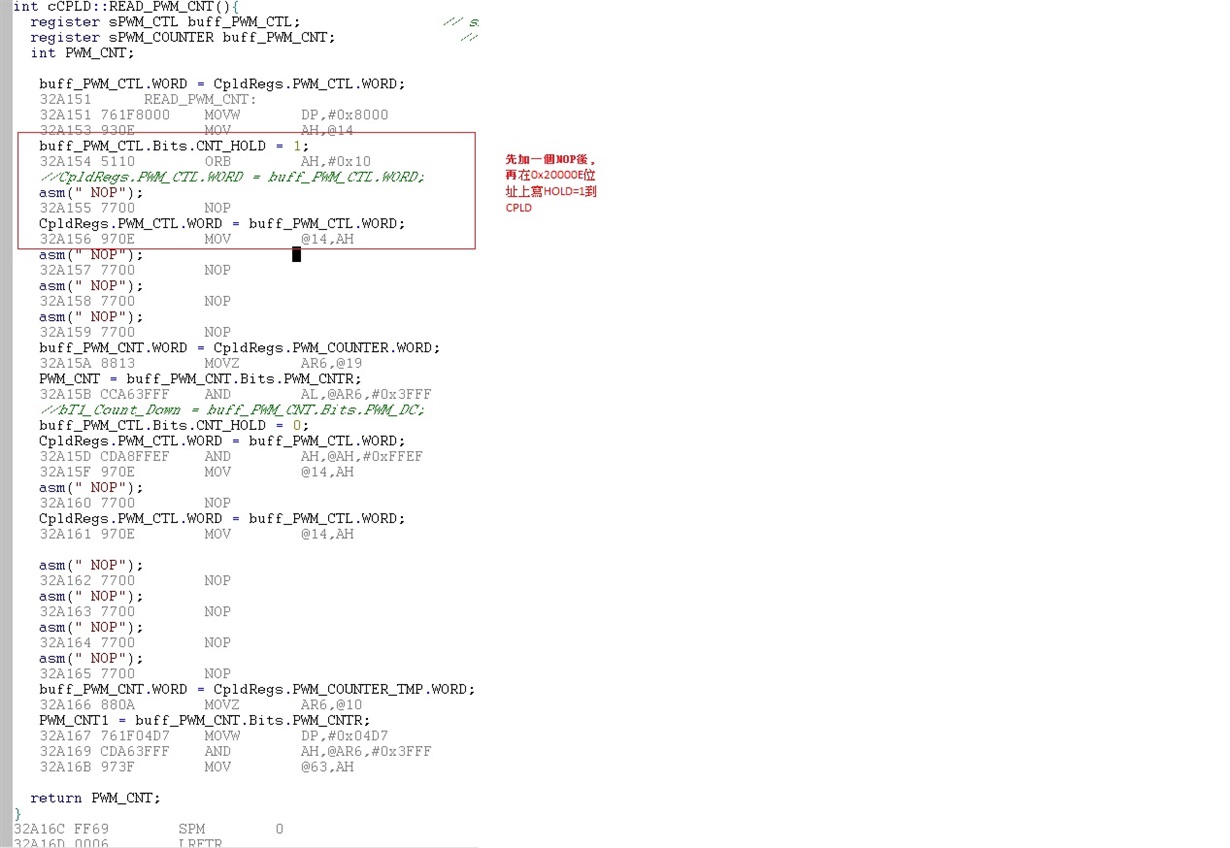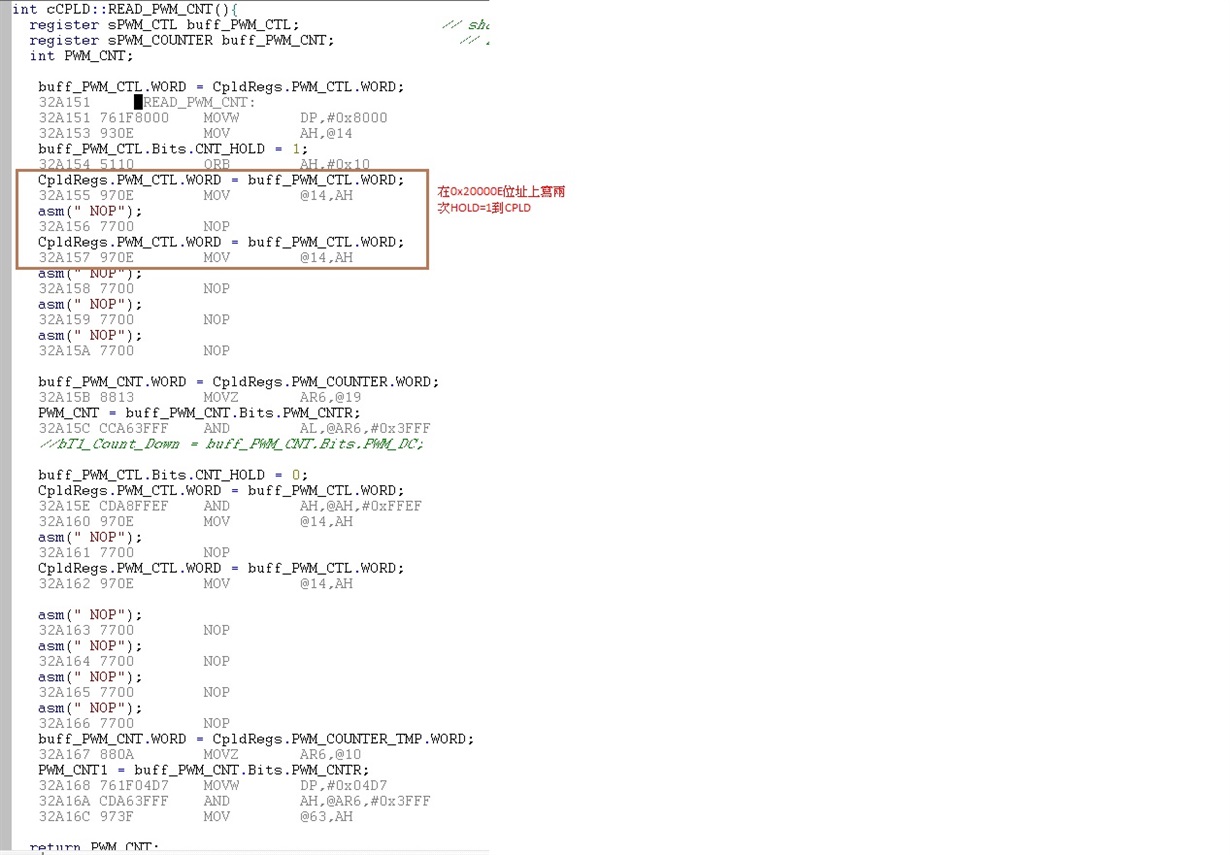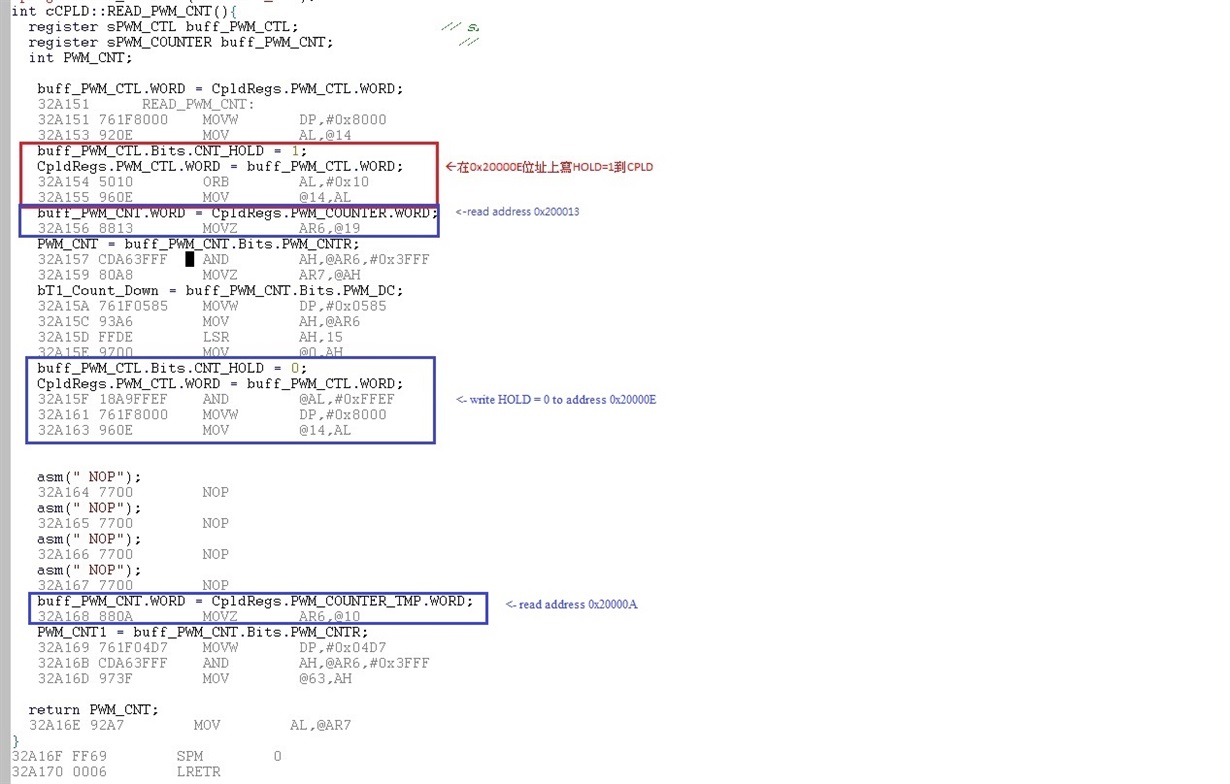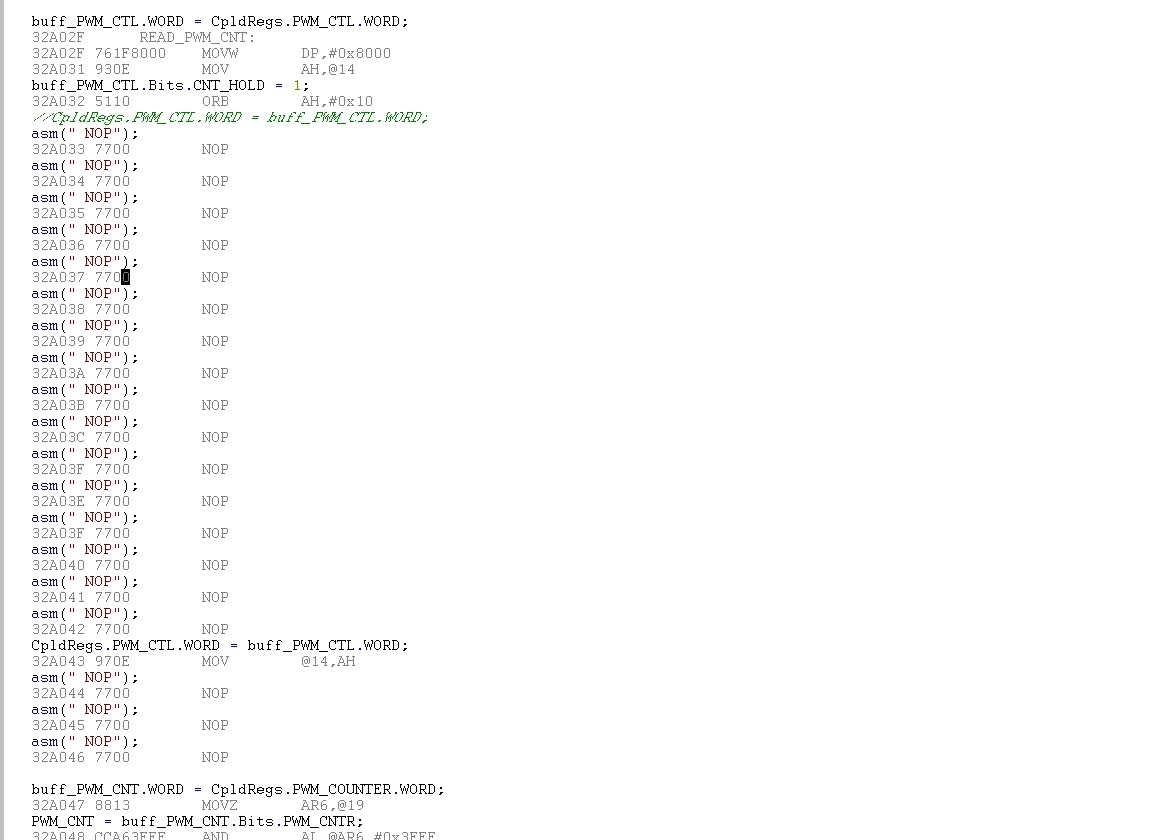Hi ,
My customer uses C28346 .
There is a issue with using EMIF to access CPLD.
The problem is that the /WR signal is not synchronous with DATA BUS.
It expects that write a 0x37 to CPLD.
But in reality, it writes a old data 0x27 to CPLD .
After adding a "NOP" into fail code, the result is correct.
Question1: What is the reason causing that the /WR signal is not synchronous with DATA BUS ?
Question2: What the correct solution is?
thanks,
best regards,
Simen
-----------<Below is the fail code >--------------------------------------------------------------------------------------
register sPWM_CTL buff_PWM_CTL;
register sPWM_COUNTER buff_PWM_CNT;
int PWM_CNT;
buff_PWM_CTL.WORD = CpldRegs.PWM_CTL.WORD;
buff_PWM_CTL.Bits.CNT_HOLD = 1;
CpldRegs.PWM_CTL.WORD = buff_PWM_CTL.WORD; <---write HOLD=1 to CPLD at 0x20000E address
buff_PWM_CNT.WORD = CpldRegs.PWM_COUNTER.WORD;
PWM_CNT = buff_PWM_CNT.Bits.PWM_CNTR;
buff_PWM_CTL.Bits.CNT_HOLD = 0;
CpldRegs.PWM_CTL.WORD = buff_PWM_CTL.WORD;
----------------------------------------------------------------------------------
The fail code wave form: (hold not successful , reg 0x0e Wr 0x37)
-----------<Below is the successful code >--------------------------------------------------------------------------------------
register sPWM_CTL buff_PWM_CTL;
register sPWM_COUNTER buff_PWM_CNT;
int PWM_CNT;
buff_PWM_CTL.WORD = CpldRegs.PWM_CTL.WORD;
buff_PWM_CTL.Bits.CNT_HOLD = 1;
CpldRegs.PWM_CTL.WORD = buff_PWM_CTL.WORD;
asm(" NOP");
CpldRegs.PWM_CTL.WORD = buff_PWM_CTL.WORD; <---write HOLD=1 to CPLD at 0x20000E address , and it is successful
asm(" NOP");
asm(" NOP");
asm(" NOP");
buff_PWM_CNT.WORD = CpldRegs.PWM_COUNTER.WORD;
PWM_CNT = buff_PWM_CNT.Bits.PWM_CNTR;
buff_PWM_CTL.Bits.CNT_HOLD = 0;
CpldRegs.PWM_CTL.WORD = buff_PWM_CTL.WORD;
asm(" NOP");
CpldRegs.PWM_CTL.WORD = buff_PWM_CTL.WORD;



